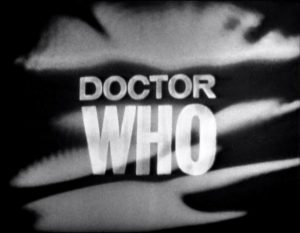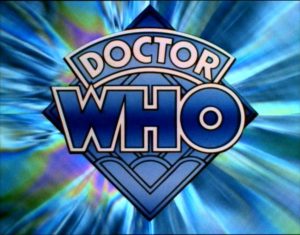To borrow some words from Neil Gaiman…
What’s the name of the word for things not being the same always. You know, I’m sure there is one, isn’t there? There must be a word for it… The thing that lets you know time is happening. Is there a word?
Change.
Things change. It’s inevitable. The more it stays the same, the less it changes (Spinal Tap). The problem is, while it’s bound to happen sooner or later, not everyone is happy with it.
We’re not talking the big, impossible, philosophical imponderables here, though if you read enough Sandman you’re going to be fairly well equipped to deal with them. We’re talking Science Fiction.
Over the course of my life, we’ve had six different Star Trek series, and if they’ve taught me one thing it’s that Star Trek can’t handle continuity no matter how many devoted fans you’ve got maintaining the wikis. And if it’s taught me another thing it’s that sometimes changes take a long time to explain (why the original series Klingons looked the way they did, f’rinstance. It’s a long haul, but it is there). Sometimes, though, you change things just a bit too much in one go and you end up with the Star Trek: Discovery Klingons and that’s just “nope, I’m out”. Strangely, I’ve just stopped watching rather than popping up on the Discovery Facebook group complaining about the Klingons after every episode has aired.

Another big change is coming to Doctor Who this year. In case you’ve been living under a rock and haven’t heard the news, the latest actor to play the title role is Jodie Whittaker.
To say this announcement made some people unhappy would be fairly accurate. I know people who have decided now to stop watching Dr Who completely. In much the same way Stephen Fry did when he left Twitter or the way this last winter has been coming back and back and back.
Let’s ignore the fact that this is less science fiction and more story-driven space fantasy. Let’s ignore the fact that the show has broken its own rules on more occasions than you can shake a big stick at for the sake of the story. Okay, so a Timelord can only regenerate 12 times. Fair enough. Much has been made of The Master going on a quest for additional regeneration cycles. Much was made of the big Story Arc Achievement Unlocked that gave Matt Smith the extra set of regenerations and brought us Peter Capaldi. I mean, it was obviously going to happen, the BBC weren’t going to end Dr Who just to stick to this magic number. Let’s ignore the fact that on at least one occasion the show has had details of regenerations before William Hartnell and this magic number should’ve been storied away around Sylvester McCoy.

The BBC like to telegraph things a long way in advance. The writing was on the wall for a female Doctor when Michelle Gomez stepped into The Master’s shoes and delivered a delightful performance straight out of Green Wing. And when a Timelord was shot on Gallifrey, regenerating smoothly from a bald, white guy into a black woman and no-one around her so much as raised an eyebrow.
Regenerations on Dr Who follow roughly the same procedure.
- Actor currently playing The Doctor announces they’re going to leave. Much wailing and gnashing of teeth, how could they do this, who could ever play the role better, etc. etc. etc.
- BBC schedule an entire evening’s “entertainment” to revealing the new Doctor. Cue much admiration of the current incumbent, interviews along the lines of “of course, when this actor did their audition we realised we’d got our new Doctor” without ever revealing anything, and cue me tuning in to Facebook about 10 seconds before the end of the show to find out who it is without having to watch this time filler. Seriously, just tell us. Stick it in Newsround that morning.
- Now we know who the new actor is, cue much wailing and gnashing of teeth, how could they do this, how is Tristan Farnon / Casanova / Malcolm Tucker going to fit? Why didn’t they pick Paterson Joseph / Idris Elba / Rufus Sewell / etc? And, in the case of the 11th Doctor, cue a conversation that started, in a pub in Inverness with a friend I’d not seen for 3 years, not with “How are you?” or “What have you been up to?” but “Who the f*ck is Matt Smith?” (By a curious coincidence, a year or so later, a friend of mine was returning from a University Dean’s dinner in Inverness, walking along the high street in full regalia, when a voice behind him commented on how cool his cape was. Dean in question turned round to find Matt Smith, in Inverness having a tweed jacket made.)
- And after about 2 or 3 episodes of the new team, the new TARDIS console room, you’re wondering what all the fuss was about, of course <insert actor here> is The Doctor, how could it’ve been anyone else?
- And repeat.
Over the years, The Doctor has officially been played by 16 men. Okay, so one of them was Peter Cushing for the Dalek movies, and that doesn’t entirely count, and one of them was an actor playing an actor playing The Doctor but who has now officially played that Doctor (wibbly wobbly timey wimey and so on).
Now I’ve not entirely enjoyed the last few series of Dr Who. Not because of the actor playing The Doctor, but because the writing has been poor. I miss the good old days of a story being strung out over 4 or 6 episodes, not wrapped up in 1. Recently, the pacing of the episodes have been off, single-episode stories have felt rushed, two-parters have dragged along. So for me, at least, the biggest change is that Stephen Moffat is stepping down from Dr Who.
Like Mr M, the new head honcho has written episodes of Dr Who in the past. Unfortunately, they’re no “Blink”. Instead he’s given us “Dinosaurs on a Spaceship”. He has written some unusual episodes, though, playing more with the pacing and the episode format. He’s also written a large portion of Torchwood. So this change is the one I’m really excited about. This new Doctor will survive on the strength of the stories she’s given.
